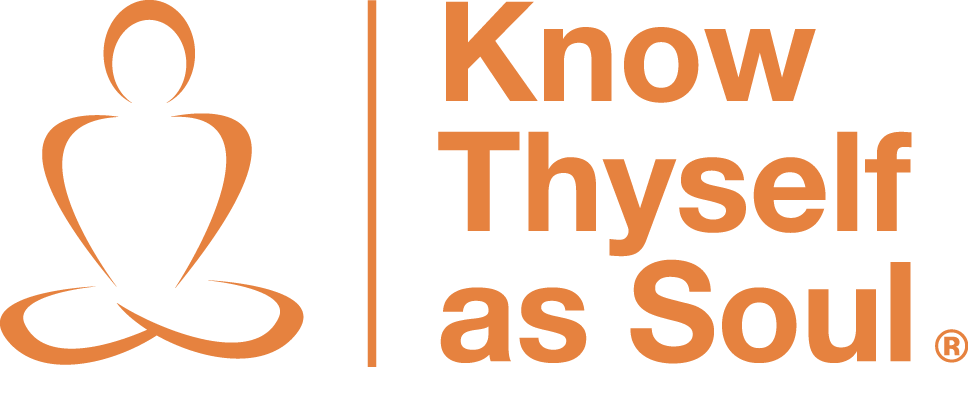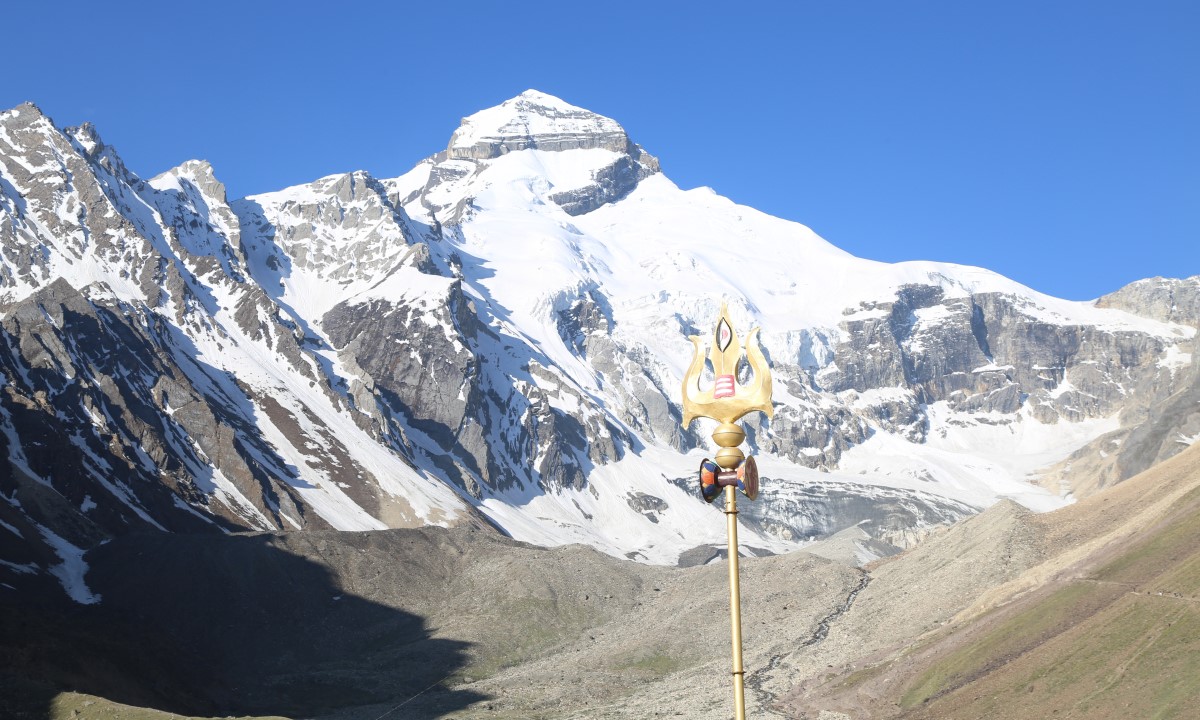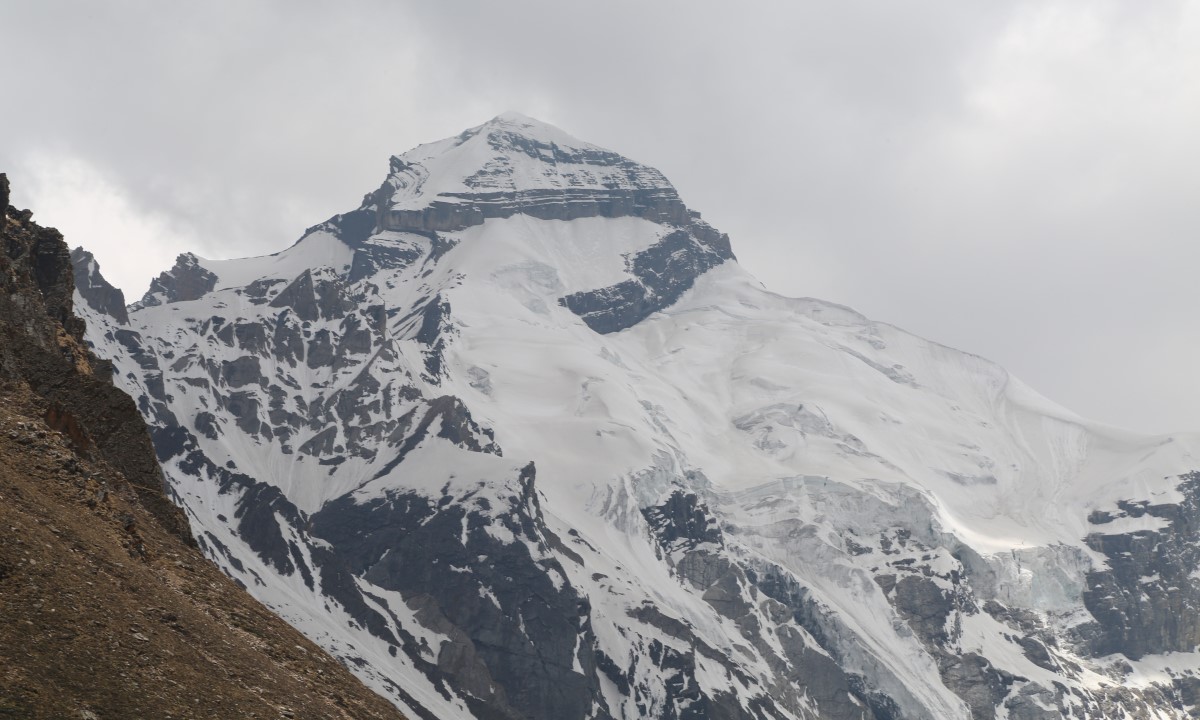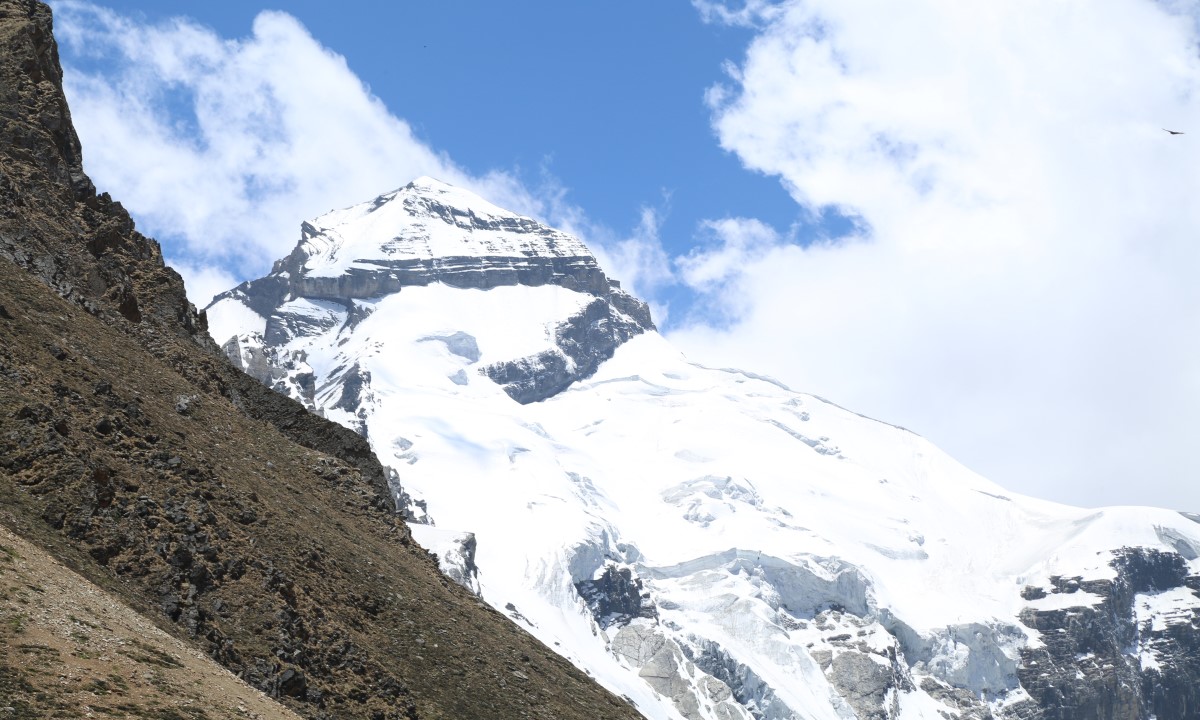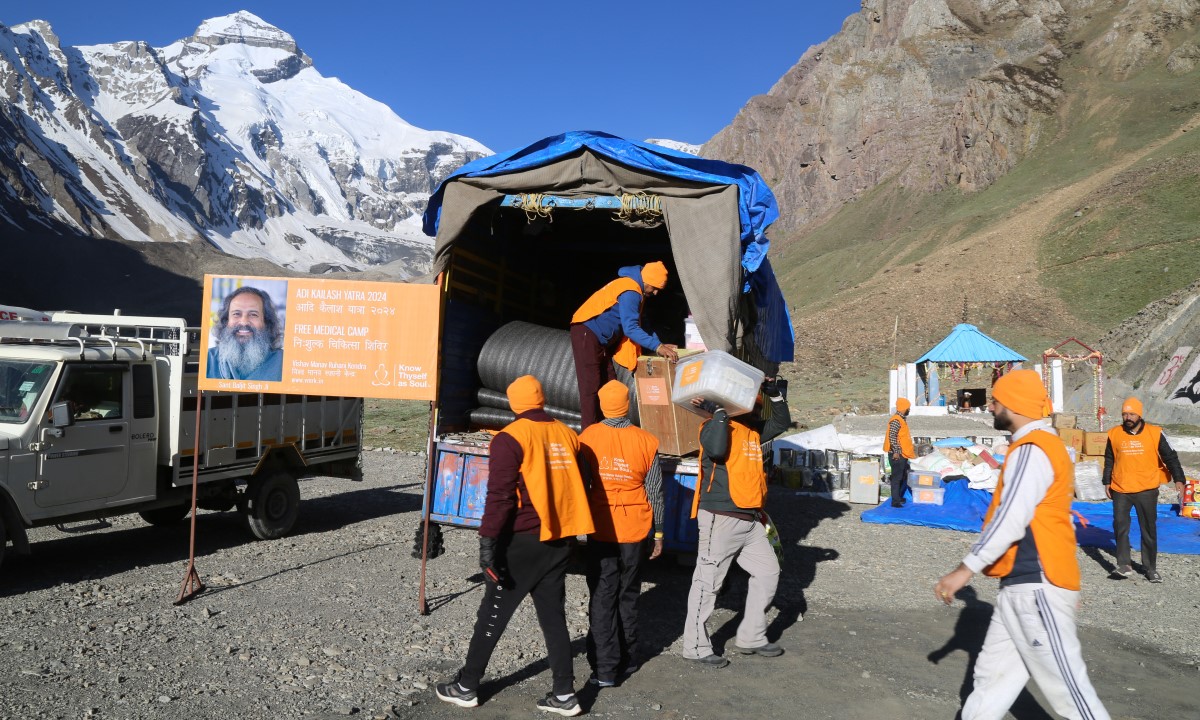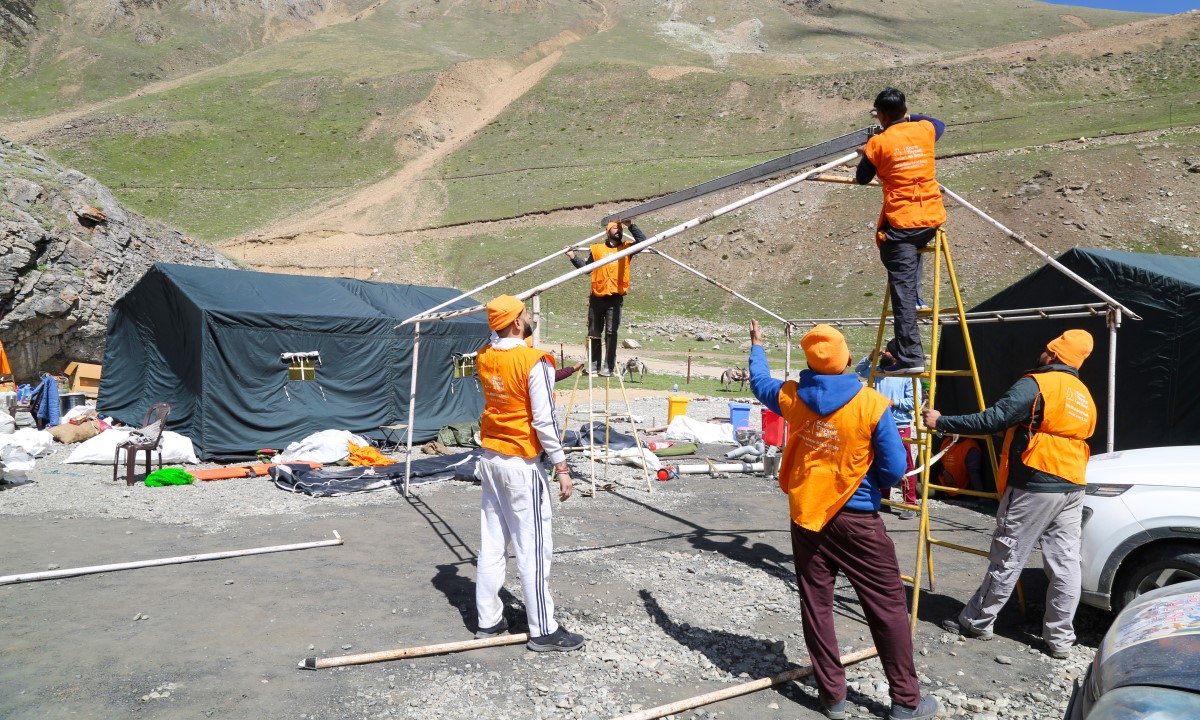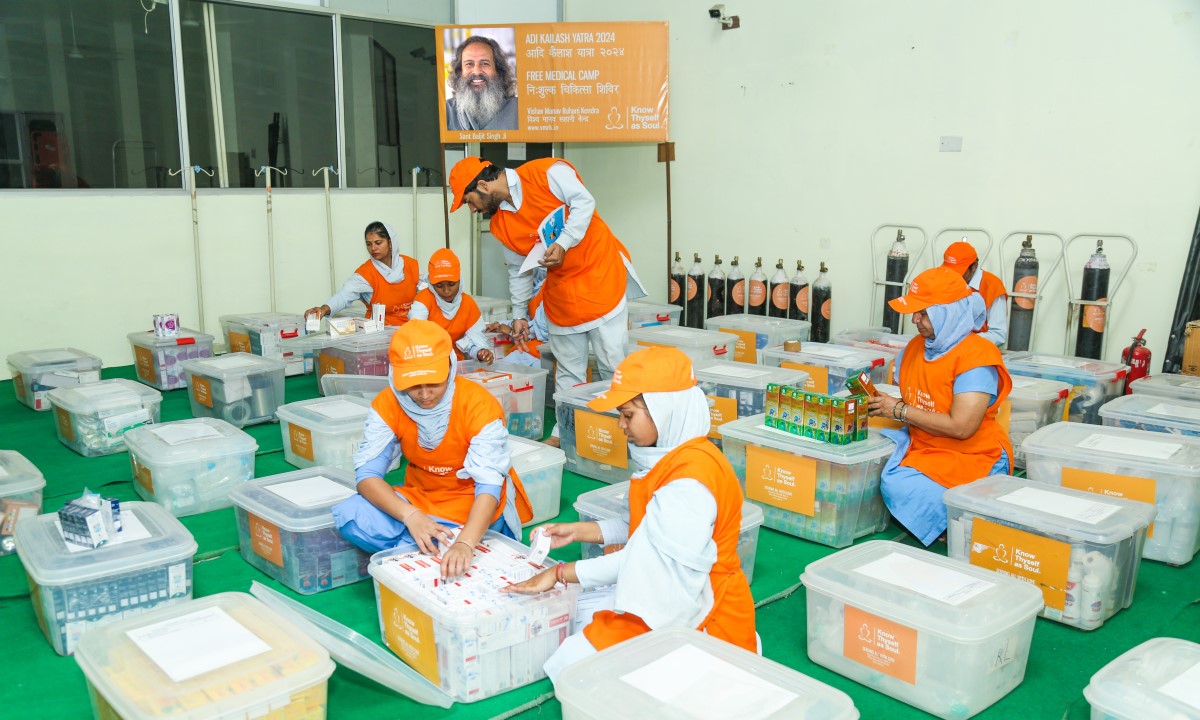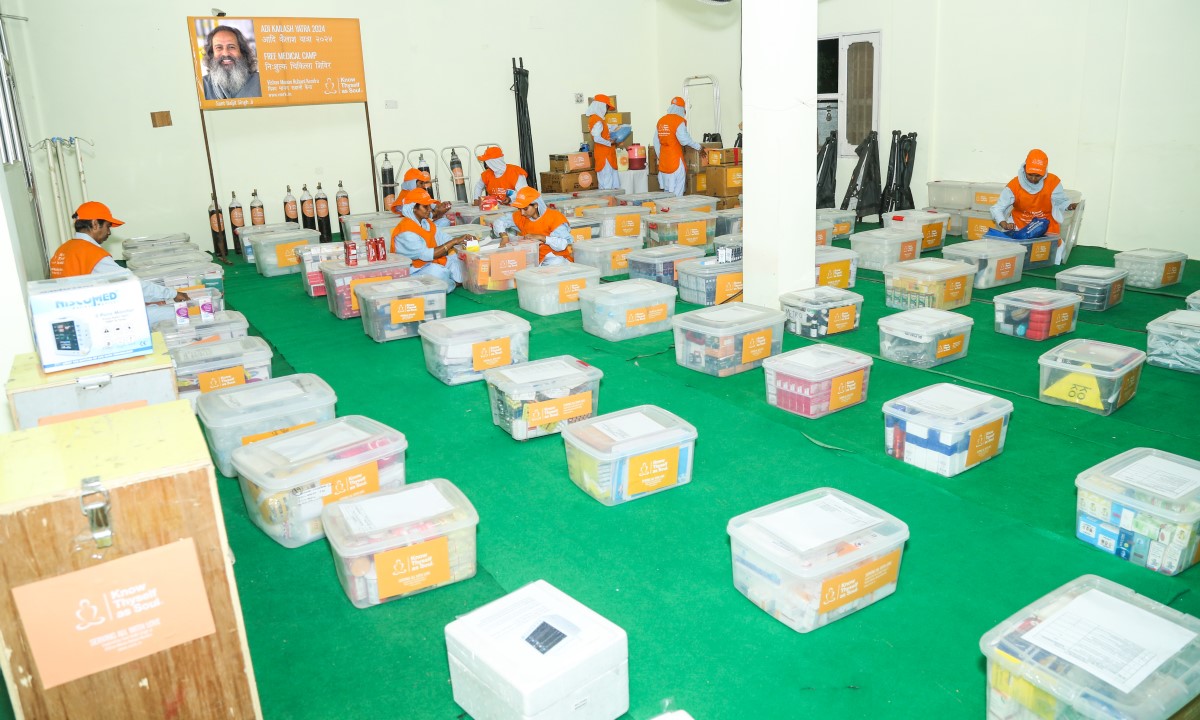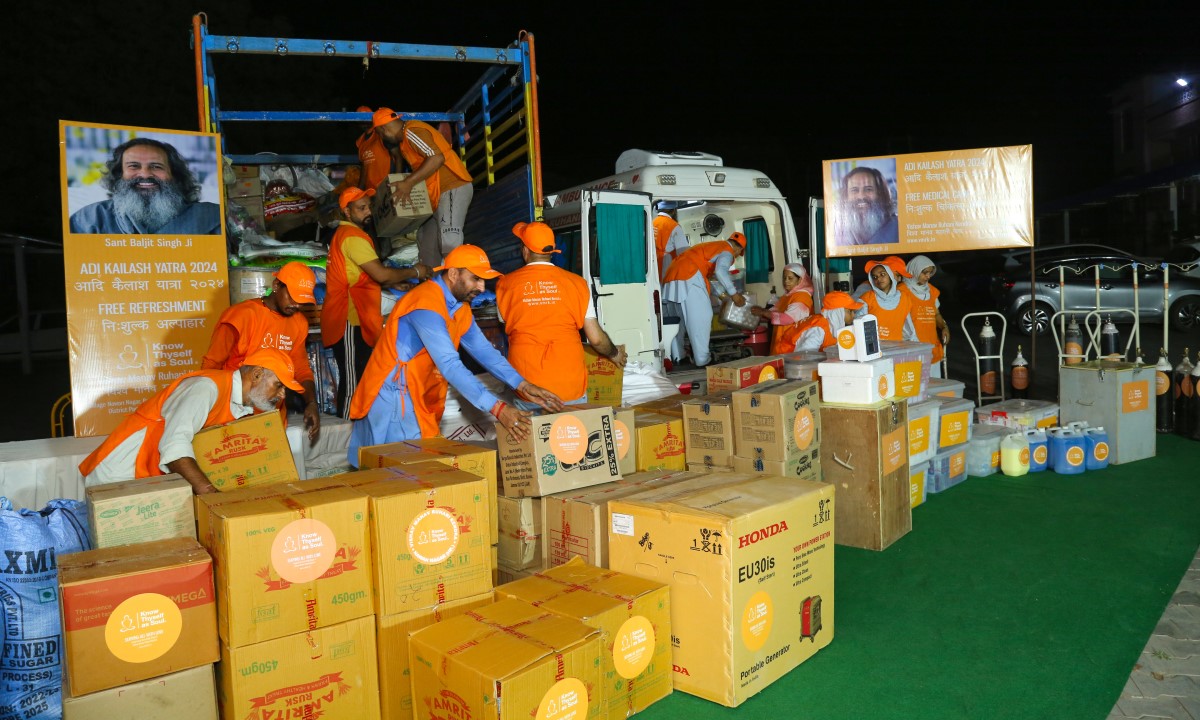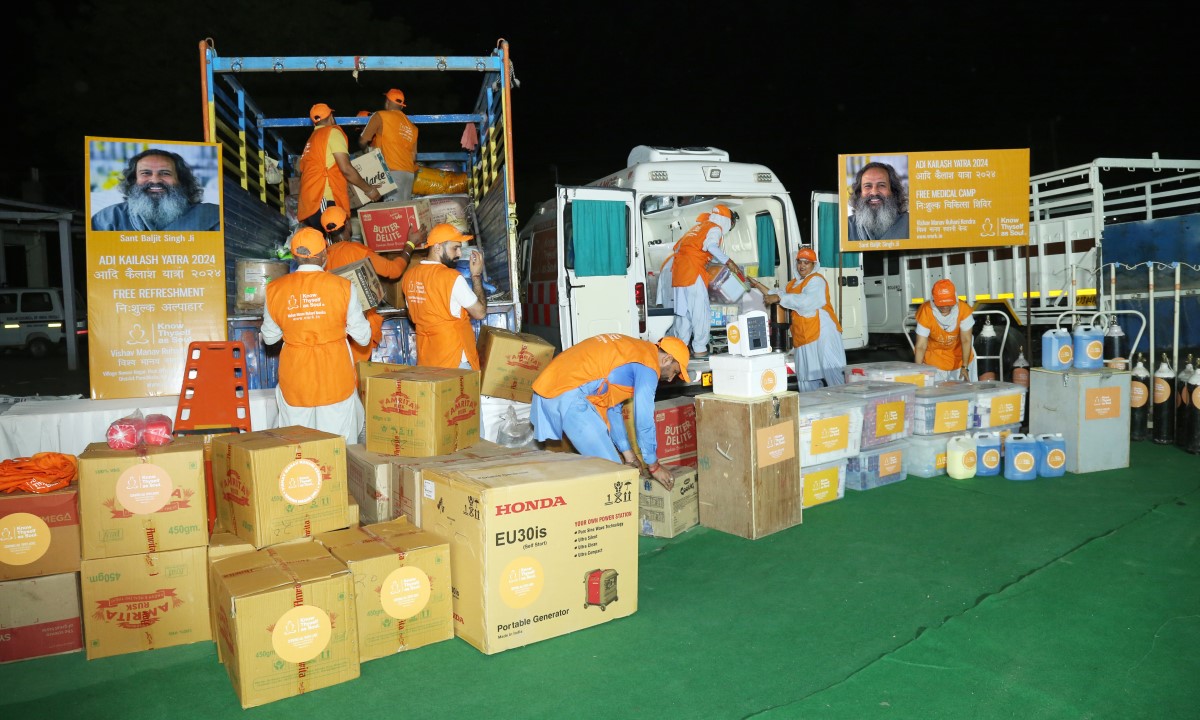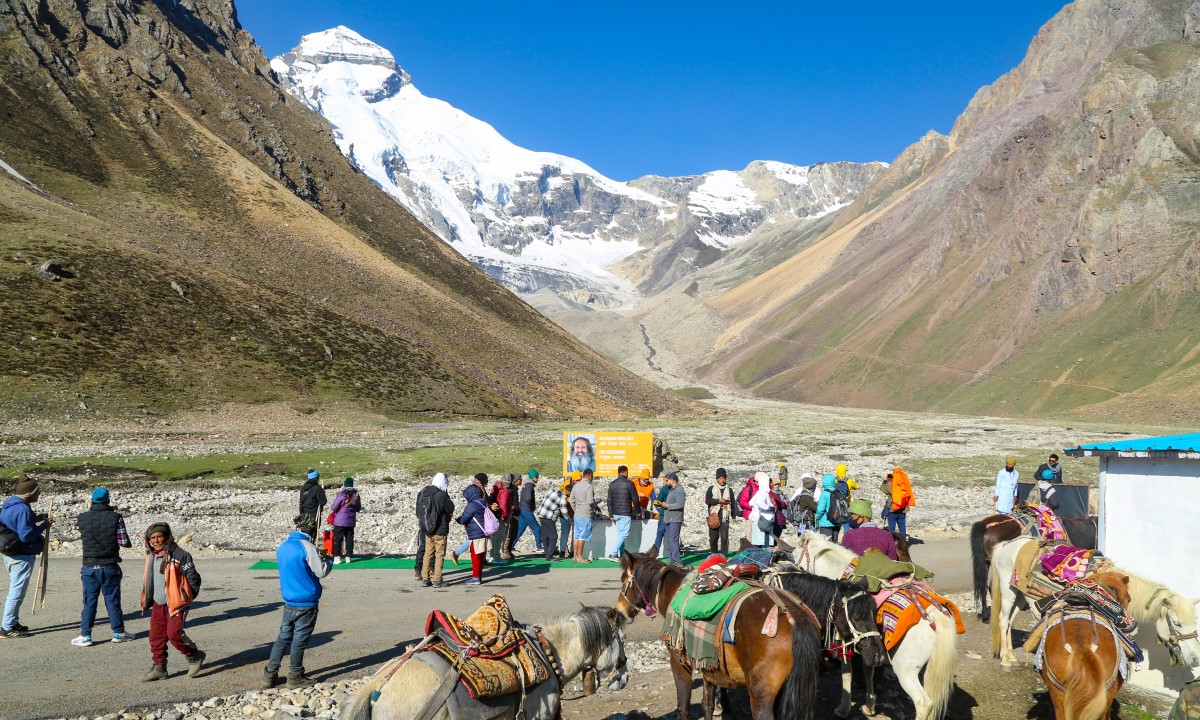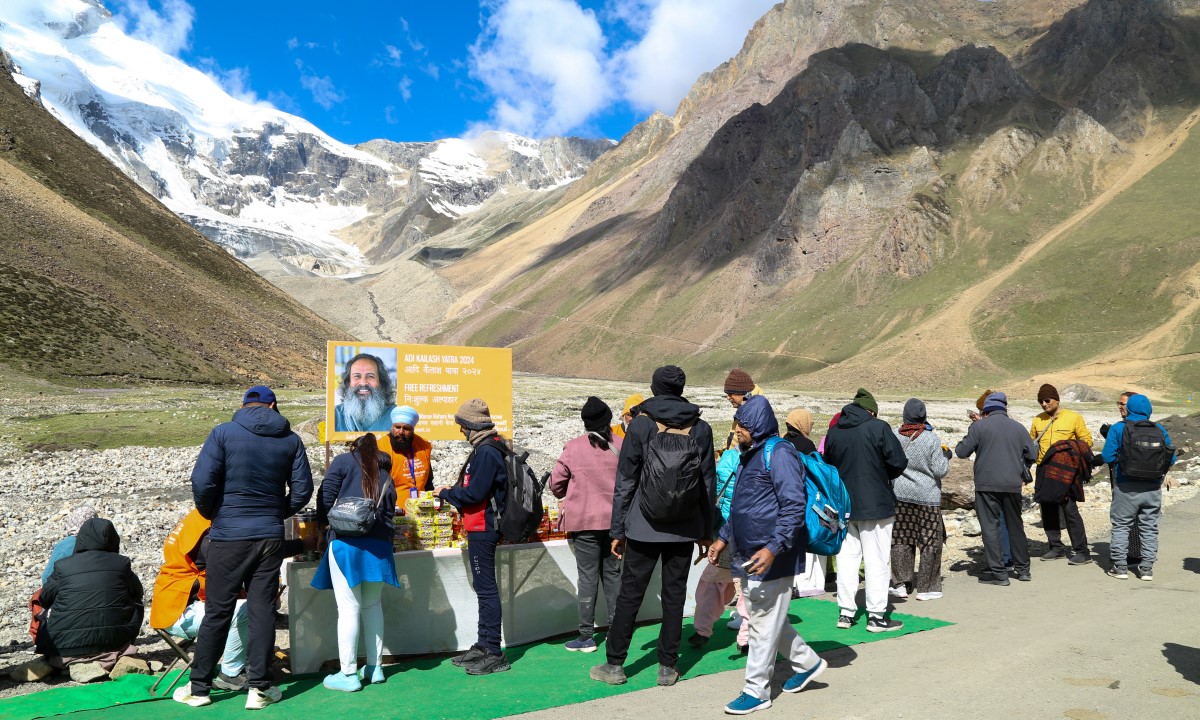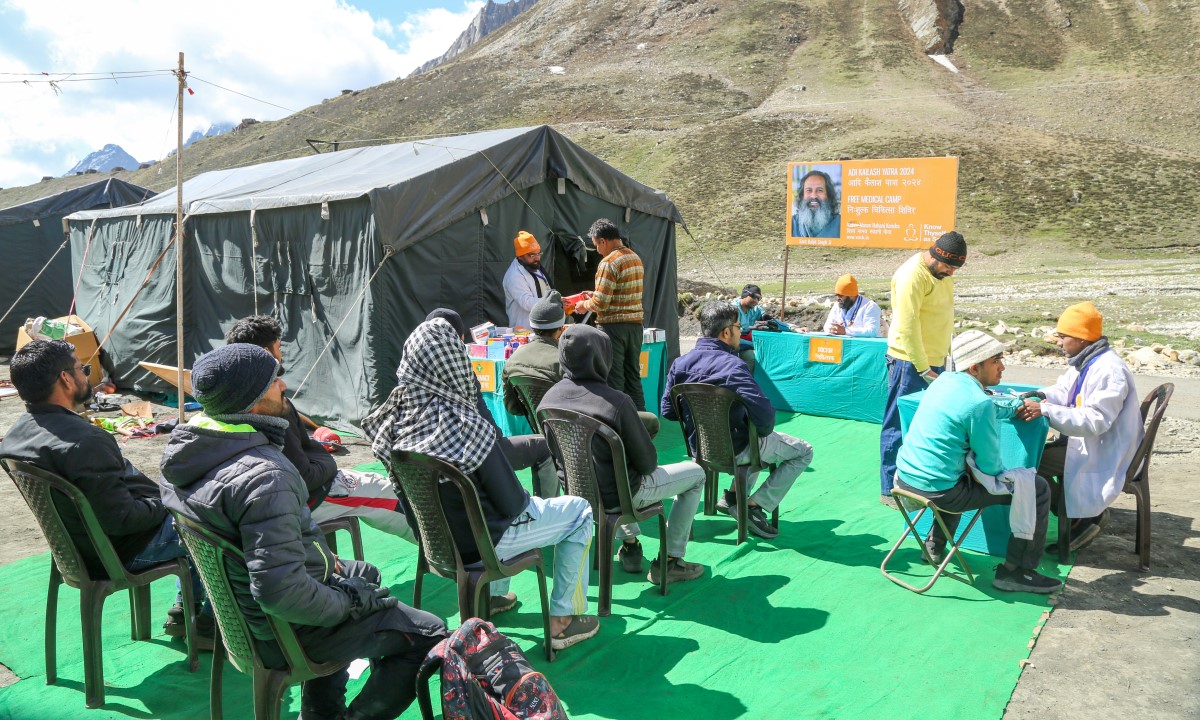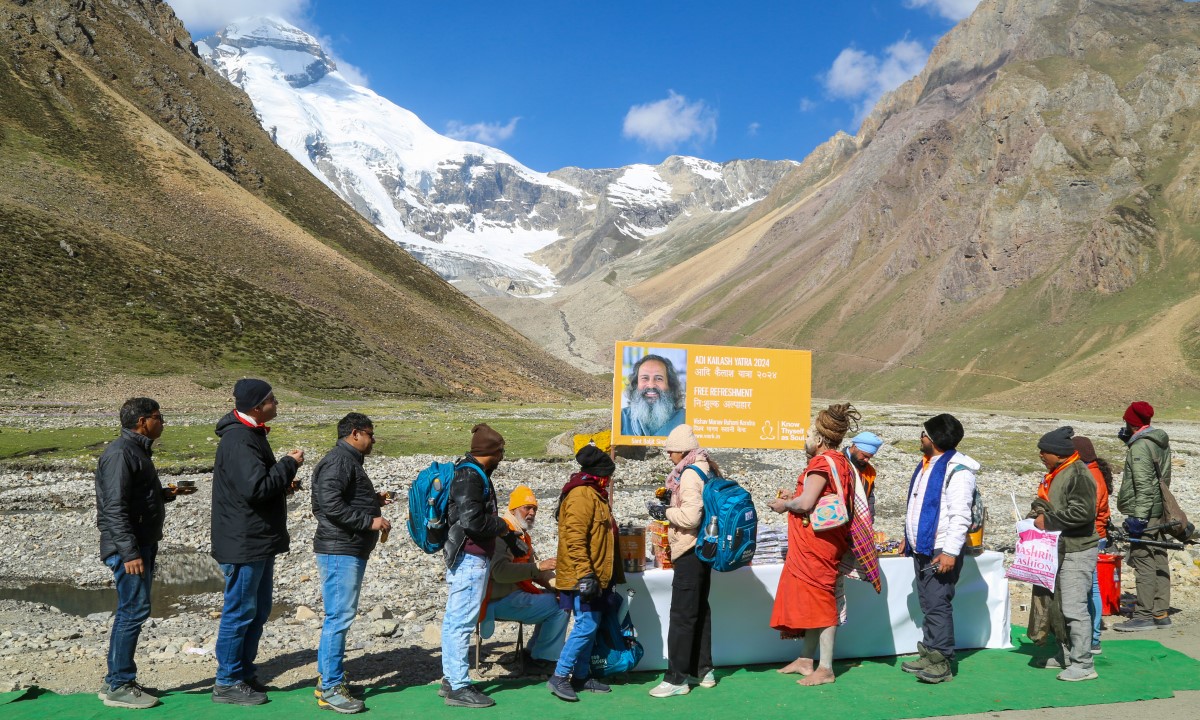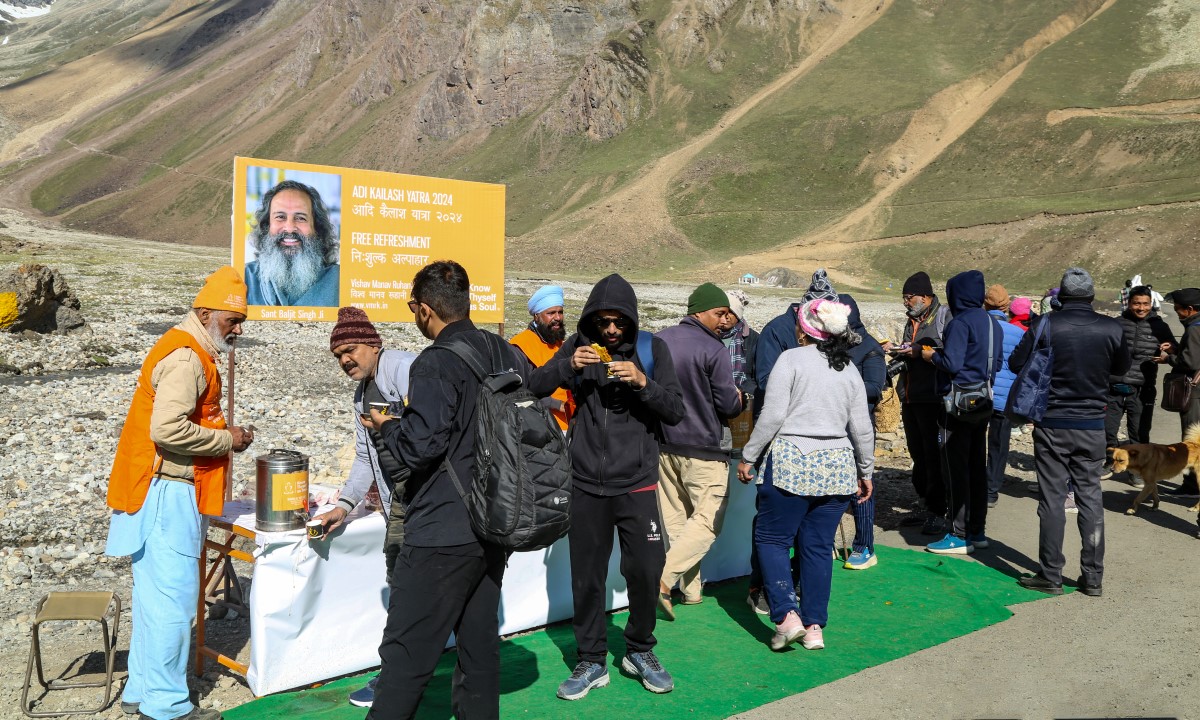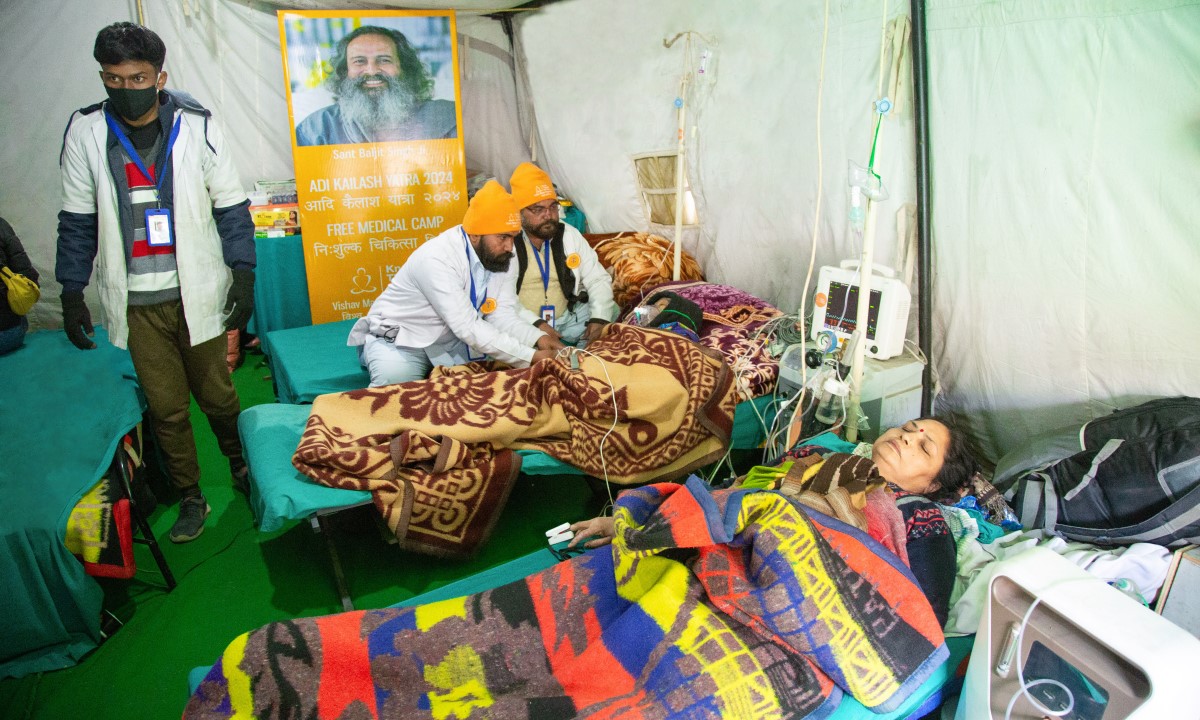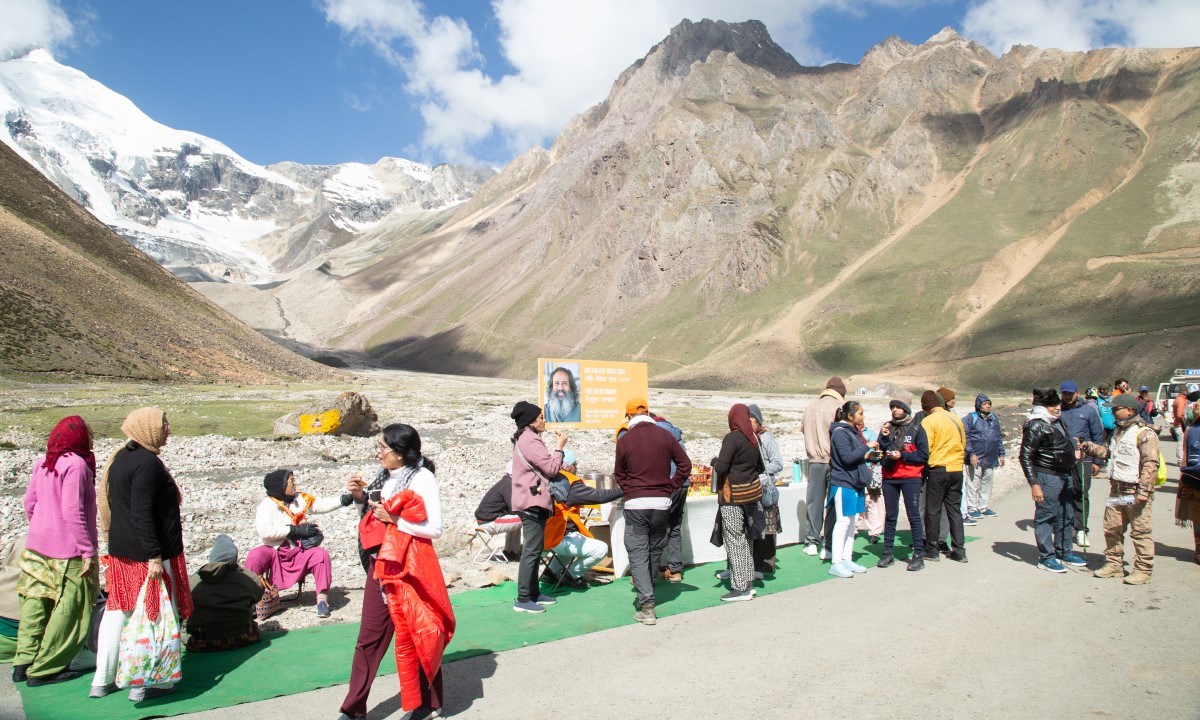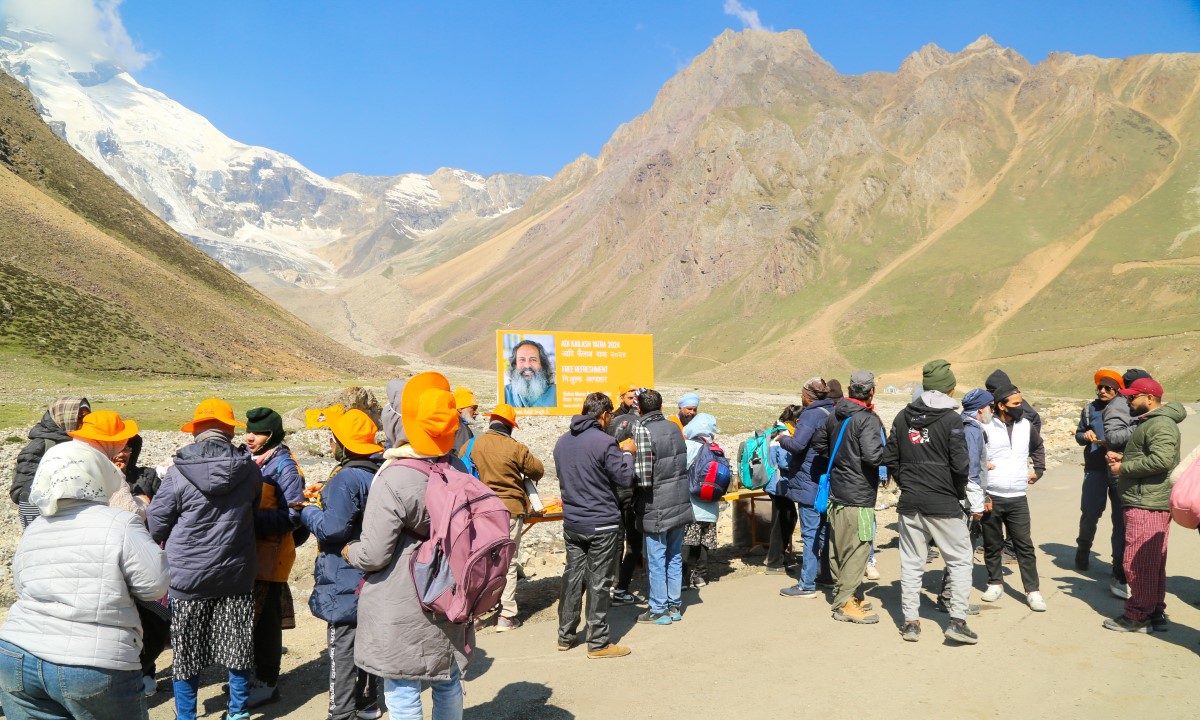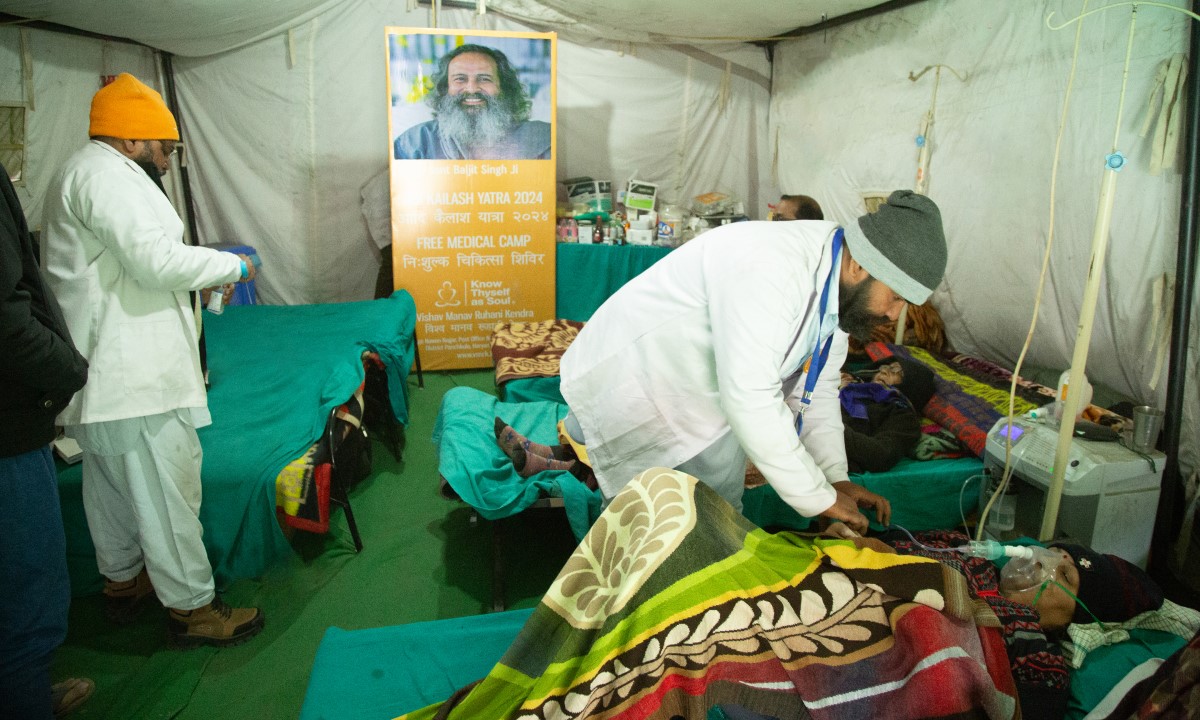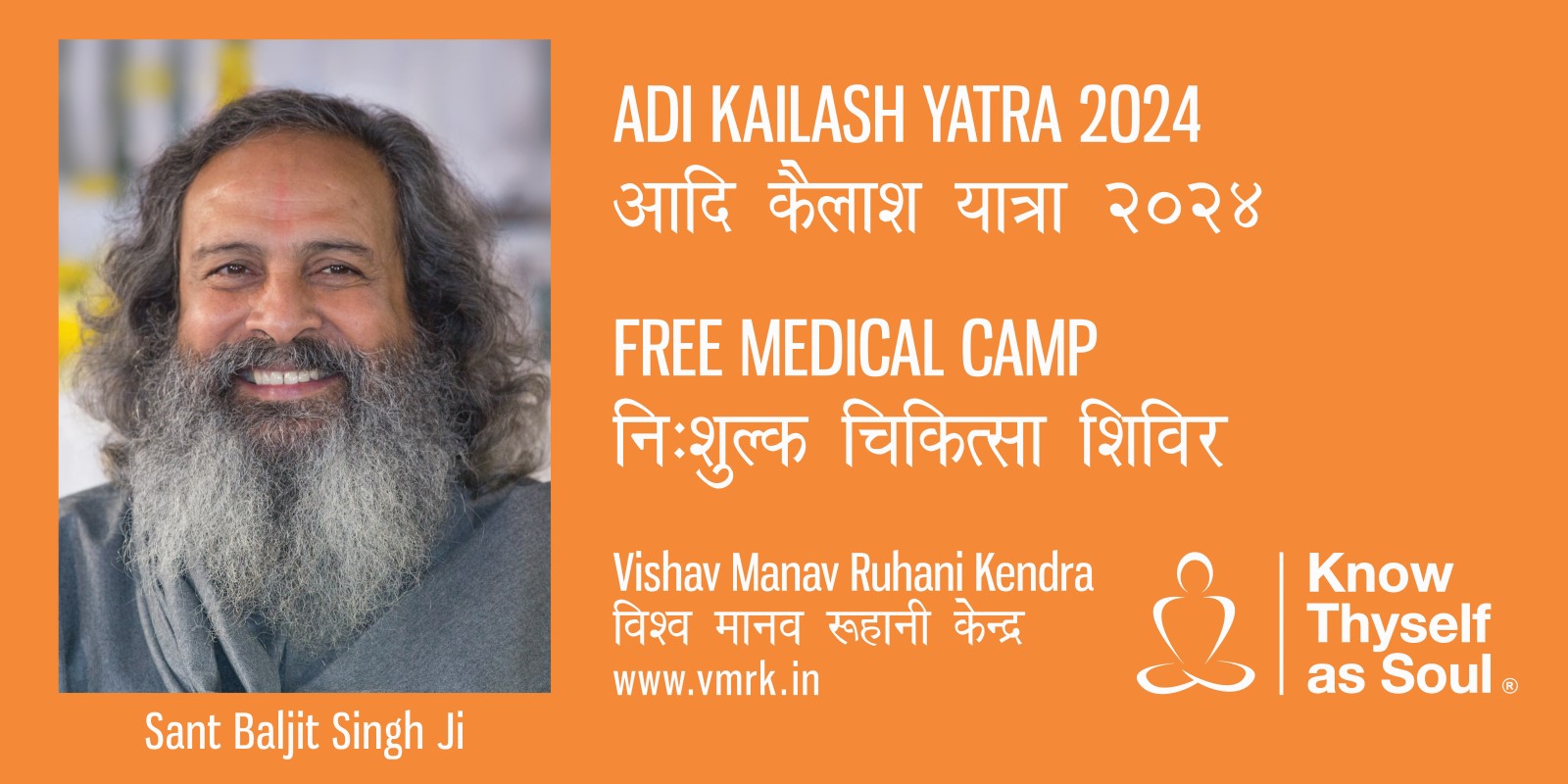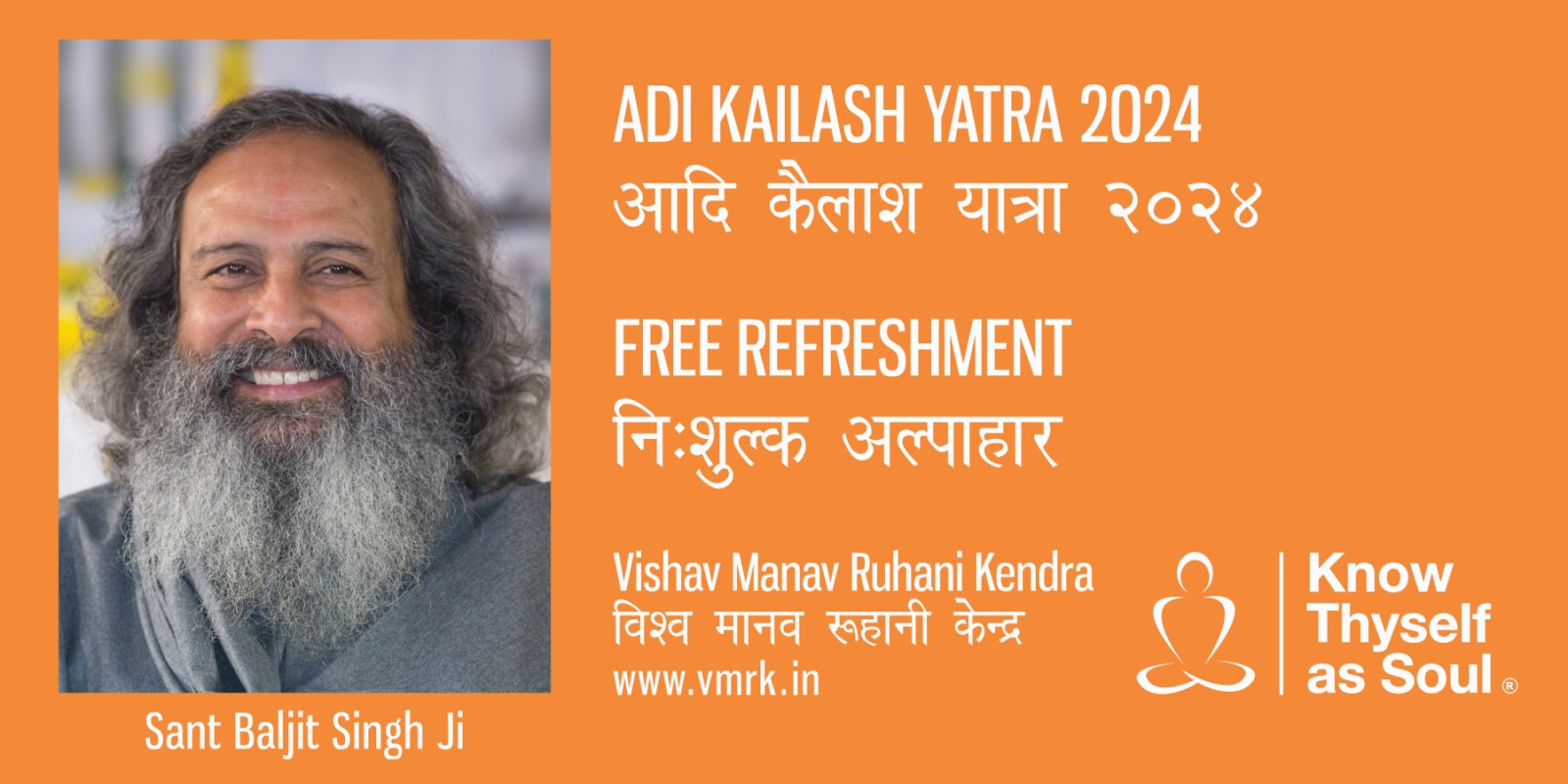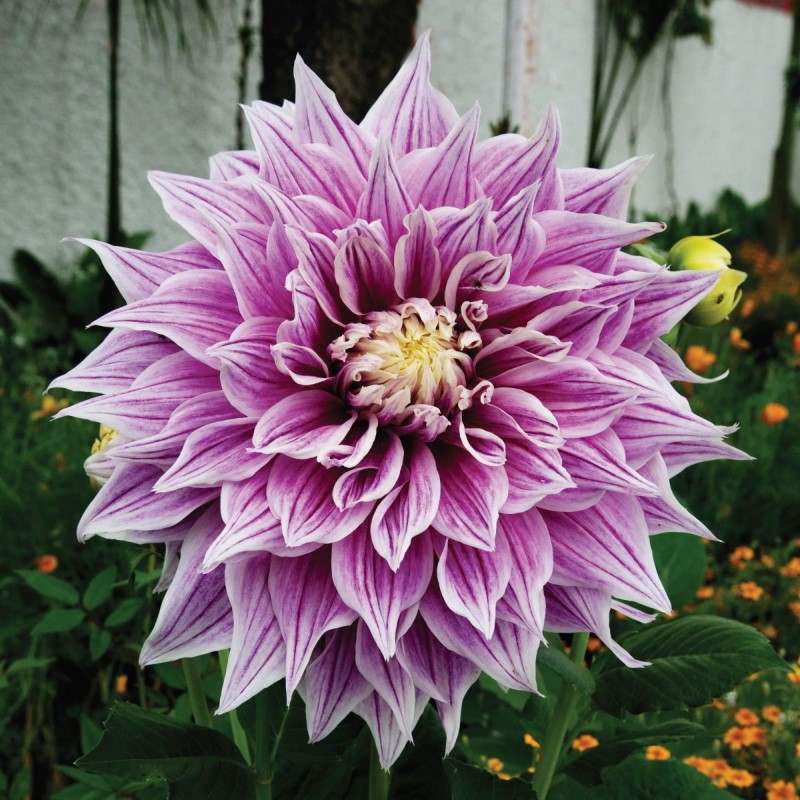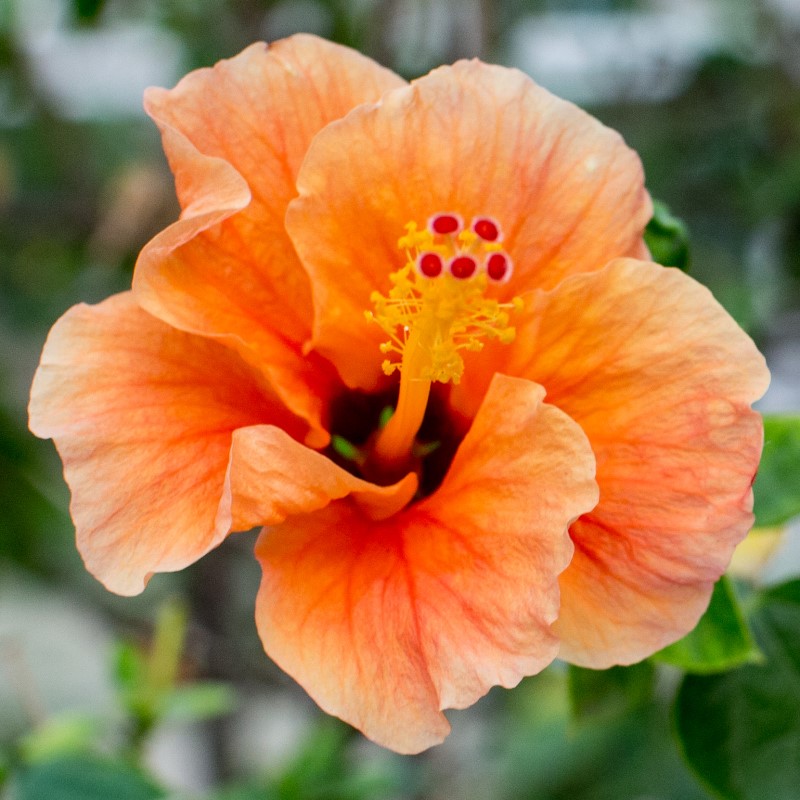Serving pilgrims at Adi Kailash Yatra 2024
Each year, thousands of pilgrims undertake a multi-day journey to the foot of Adi Kailash, the end-point of the yatra (pilgrimage). The yatra commences with a journey on an off-road vehicle from Dharchula town, the junction point for various routes across the state. From Dharchula, pilgrims travel 65 kilometers to reach Gunji village. The final leg of the journey involves traveling 33 kilometers from Gunji village to Jolingkong. Then pilgrims trek 2–3 kilometers to the base of the mountain, at an altitude of around 5,600 meters where the oxygen levels are low.
The yatra is mainly undertaken during May and June. Despite these months being the hottest of the year, overnight temperatures drop to sub zero levels with frequent snowfall at Jolingkong. The pilgrimage’s challenging nature, including bone-chilling temperatures and low oxygen levels, makes it accessible only to medically fit individuals. In fact, every pilgrim must first obtain a medical fitness certificate that declares them fit for the strenuous journey of the yatra.
This year, the president of the Adi Kailash Development Committee approached Vishav Manav Ruhani Kendra (VMRK) to organize a medical camp and provide refreshment services for pilgrims during the Adi Kailash Yatra 2024. VMRK is grateful to the local administration for providing the opportunity to serve pilgrims from May 29 to June 15, 2024. The location allocated to VMRK was situated approximately 2 kilometers from the foot of Adi Kailash.
Planning and preparation
Since the base of Adi Kailash is at a high altitude, systematic planning for this charitable activity was essential. First, VMRK volunteers conducted a site visit to gain a comprehensive understanding of the route, nature of the terrain, and available facilities. When VMRK volunteers traversed the pilgrimage route through unpaved narrow tracts, they observed that the oxygen levels declined gradually yet noticeably.
After the site visit, VMRK procured the necessary items for this charitable activity. This included two 14 X 21 feet snow-proof tents, thick roll sheets as mattresses, and sleeping bags rated for sub-zero temperatures to ensure maximum insulation and comfort. The base of Adi Kailash is situated in a remote region with limited availability of power supply. Therefore, a 3-kilowatt generator was also purchased to provide continuous power supply for operating medical equipment. Additionally, 12 oxygen cylinders and 2 oxygen concentrators were also acquired to ensure an adequate oxygen supply for pilgrims experiencing respiratory difficulties.
A team of volunteers from nearby areas came to the VMRK center in Nawan Nagar to organize and pack the materials. They packed the medical supplies and equipment into 70 boxes and the rations into waterproof bags. Each box and bag was methodically and clearly labeled to list the contents.
The boxes containing medical equipment were loaded in a thoroughly sanitized ambulance. The remaining items were loaded onto a truck and a pickup truck. These vehicles, along with a team of medically certified doctors and volunteers, departed from the VMRK center in Nawan Nagar at midnight on May 25.
Journey and set up
On May 27, the team arrived at Dharchula after overnight stays at various points along the route. The following day, en route to Gunji, the truck faced difficulty navigating a steep mountain. To alleviate this situation, VMRK volunteers unloaded and transferred some items to a rental truck hired from a nearby region. After passing Gunji, the team came across a boulder-strewn path that the pickup truck was unable to drive through. A nearby backhoe loader, engaged in clearing the road, assisted by towing the pickup truck across that stretch. By midnight on May 29, the team finally reached the campsite in Jolingkong, approximately 2 kilometers from the foot of Adi Kailash.
Early the next morning, the team unloaded the items. Then they set up the two tents side by side, adjacent to the road that lay along the pilgrims’ trek route. One tent served as a clinical treatment center, while the other provided accommodation to the volunteers. Three tables were set up outside the medical tent, each for a specific purpose: patient registration and first aid, patient consultations, and dispensing free medicines.
Next to the campsite, an ambulance was stationed with a driver and an ICU ambulatory technician. The ambulance was fully equipped with a portable ventilator, multipara monitor, defibrillator, oxygen cylinder, patient holding stretcher, and emergency medicines/injections.
The area behind the tents was set up for cooking refreshments, while a table for food service was arranged on the other side of the road, opposite the tents.
Medical and refreshment services
The medical and refreshment services started on the morning of May 29 and continued until June 15. Jolingkong frequently experiences snowfall in the evening hours in June. To avoid poor weather conditions and associated health problems, most pilgrims depart from the pilgrimage site by the afternoon. Consequently, VMRK volunteers served pilgrims from morning till 3 pm. Every day, frequent loudspeaker announcements informed pilgrims about these free services.
VMRK’s team of 2 doctors, 3 pharmacists, and 2 volunteers provided free consultation and medicines to the pilgrims from May 29 to June 15. The majority of the patients visiting the medical camp experienced health problems induced by the high altitude, such as breathlessness, headache, motion sickness, and nausea. More than 1,840 patients received free medical services, amongst them 127 patients received medical attention at the clinical treatment center.
In addition, a team of 13 VMRK volunteers served refreshments to the pilgrims, including tea, bread pakoda (bread fritters), rusks, biscuits, and kheer (rice pudding). Due to the thin air at this high altitude, preparing these refreshments took additional time. This prompted the volunteers to rise early in the morning to ensure timely preparation. During the 18 days of service, VMRK served refreshments to more than 7,500 pilgrims.
PILGRIMS RECEIVED MEDICAL CARE FOR HIGH ALTITUDE HEALTH ISSUES
2 doctors, 3 pharmacists, and 2 vmrk volunteers PROVIDED FREE CONSULTATION AND MEDICINES
PILGRIMS WERE SERVED REFRESHMENTS OVER 18 DAYS
VMRK VOLUNTEERS PREPARED AND SERVED REFRESHMENTS DAILY
Visitor feedback
People expressed satisfaction and happiness with the medical and refreshments services offered by VMRK and recorded their feedback in the visitor book. Some are listed below:
VMRK served with a spirit of dedication and profound care at this extremely difficult and geographically challenging holy place in Uttarakhand. The service is like a boon for this area. The volunteers and efficient leadership deserve endless praise.
Hitesh Pal Singh, Uttarakhand
Kavita Rao, Pune, Maharashtra
Vinod Joshi, Pithoragarh, Uttarakhand
